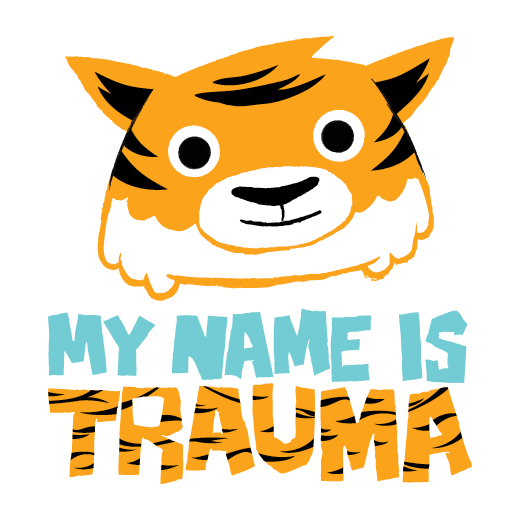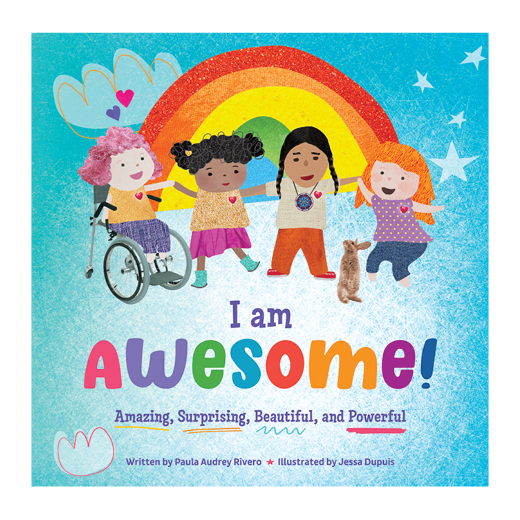Siblings of Children with Special Needs: Challenges and Unique Concerns
Image description: Two children sit on a couch together.
Siblings of children with special needs are a group of people that often get overlooked. We probably don’t think about the other sibling (or siblings) that often in clinical practice, but their needs within a family setting are important to acknowledge and address.
Our therapists see a lot of families and like to collaborate with the whole family whenever possible. On many visits, we will see brothers and sisters, both biological and step-siblings, who are present when we provide our services. Some siblings come to join us at the Qi Adventure Club, whether to provide support or join in on the fun.
Siblings of children with special needs are extremely important within any family’s dynamic. Siblings spend a lot of time with their brothers and sisters and they face a unique set of challenges and concerns.
It is important not to generalize as each sibling will react to their situation differently and each family’s dynamic is unique. We are going to take a look at some of the effects, both positive and negative, on siblings of children with special needs.
Research on the Effects on Siblings of Children with Special Needs: A Mixed Bag
For many years, studies into the impact children with special needs have on their siblings were largely understudied. There is evidence that having a sibling with special needs may affect the health of neurotypical siblings.
However, a literature review of 46 articles identified 21 different factors that may play a role in the mental and physical health of neurotypical siblings, (Marquis, SM, et al.,2019). These factors include:
Social determinants
The family dynamic and characteristics
Support factors
Type and severity of the sibling’s disability
Individual variables
Characteristics of the child with the disability
Age of the neurotypical sibling, gender and position in the family, for example, the youngest, middle, or eldest child.
The above factors also interact with each other and demonstrate the level of complexity involved when studying the health effects on siblings of children with special needs.
These diverse variables may also explain the conflicting results of research studies in neurotypical siblings. Interestingly, some studies show no adverse effects, some show negative effects and some positive.
The Positive Effects
Some siblings develop some pretty special characteristics in response to living with siblings with special needs. In a Tel Aviv study using artwork and questionnaires, Zaidman-Zait et al (2020) found:
“... that children with siblings with intellectual disabilities scored higher on empathy, teaching and closeness, and scored lower on conflict and rivalry than those with typically developing siblings”
Siblings of children with special needs also tend to demonstrate higher levels of:
Self-control
Maturity
Tolerance towards difference
Responsibility
Altruism
Resilience
These positive characteristics result from the unique experience of being involved with the care of a child with special needs.
Possible Challenges
As mentioned, every family situation is unique but there are a few challenges that are common to siblings of special needs children.
Siblings may experience a mixture of conflicting emotions, including love, anger, resentfulness, guilt, fear, embarrassment, anxiety and jealousy.
Siblings may be resentful of the time and resources that parents and caregivers dedicate to a child with special needs. They may also feel embarrassed by the appearance or behavior of their sibling, especially in public settings.
These uncomfortable emotions, such as anger or resentment towards an affected sibling, may result in feelings of anxiety or guilt. A sibling may feel guilty that they are healthy. Compounding these emotions, a sibling of a special needs child may not feel able to express these feelings to parents or caregivers because they do not want to burden them further.
How to Help Challenging Emotions
Parents and caregivers can set aside unique time for siblings.
Encourage your child to talk about their feelings and allow them to express their emotions without judgement.
Each sibling needs some one-on-one time with the parent(s) or primary caregiver(s). This can be a special weekly activity or simply time together before bed. Most importantly tell your child how loved, special and appreciated they are.
Develop your support network, encourage extended family members and friends to spend time with your child.
If your child appears to be having difficulty in sharing their feelings with you, try to find a confidante, therapist or other professional support, outside of the family.
Expect normal sibling problems such as rivalry, arguments and jealousy.
Encourage age-appropriate play between the siblings and do not solely focus on the disability.
Too Much Responsibility
According to research, typically-developing siblings often assume caregiving roles towards a sibling with special needs. This role of responsibility may start at a very young age and continue into adulthood.
This additional responsibility can be providing emotional support to the affected sibling and parents and/or taking on physical care, such as bathing, feeding, cooking, and housework. Sibling parentification is the phrase coined to describe children assuming a high level of care towards a sibling.
Yet again, the effects on siblings experiencing high parentification are mixed. Research shows that siblings that help with the care of a sibling with special needs often demonstrate advanced levels of maturity and responsibility. However, very high levels of sibling parentification can lead to:
“...negative outcomes such as feelings of rejection or psychopathology, including anxiety disorders, personality disorders, and eating disorders, that persist into adulthood” (Tomeney, 2017)
How to Address Challenging Responsibilities
Developing a social support network: Involving friends, support groups, extended family and professionals has shown to alleviate the negative effects of parentification on siblings. Parents benefit from support networks and this in turn benefits siblings and alleviates some of the responsibility.
Parents should make time for one-to-one sessions with siblings to discuss care plans for the future of sibling with special needs. This helps ease anxiety about the future.
According to Holl, (2014), the sibling’s experience of a child’s disability mirrors the parent’s experience. Emily Holl suggests in her book approaching the child’s disability as a joint family effort.
Parents and caregivers can set equal expectations for all siblings as much as possible regarding behavior and chores.
Maintain family fun activities that involve and include all members, such as camping, fun days out, summer barbecues, etc.
Loneliness and Isolation
In some cases, siblings of a child with special needs may feel isolated and lonely. These feelings stem from a combination of factors.
A child may be very protective of their parents or caregivers. They may not feel comfortable discussing their worries because they do not wish to burden parents. Some siblings of special needs kids express the need to be ‘perfect’ to compensate parents for coping with the increased support needs their other siblings have. This can also lead to feelings of inadequacy and isolation.
A sibling’s friends may not identify or understand the experience of living with a disabled brother or sister. This can alienate children and teens from important peer groups outside of the family.
Information regarding the affected sibling’s condition, prognosis, and treatment may be withheld from the non-affected sibling to try and shield them. This can lead to a child or teen spending time alone in waiting rooms or listening to hushed conversations and imagining worst-case scenarios.
Feelings of isolation and loneliness in children and teens need to be identified and resolved as soon as possible to prevent them from developing into more complex issues, such as depression and anxiety disorders, in the future.
Addressing Loneliness and Isolation
Again, find time to spend one-on-one with each child and try to encourage open talk about their feelings. With younger kids, this can be done through art, music, and play.
Celebrate and recognize your child’s unique abilities and interests. Always try to attend milestone events such as concerts or soccer matches.
Provide age-appropriate reading materials and information about the condition of the sibling with special needs. Explain simply and clearly problems or changes in their condition and treatment. Foster an open attitude and encourage your child to express worries and fears, even if they may seem irrational.
Find local and online support groups and workshops to help your child or teen mix with others experiencing similar challenges and triumphs. There are many to choose from, such as:
Do not hesitate to involve specialist therapists for assessment and treatment if you have concerns regarding your child’s behavior or mental health.
A Reading List for Siblings who live with a Disabled Sibling
These books were curated in collaboration with Edmonton Public Library Picks.
Just Because by Rebecca Elliot
This is a fictional picture book about a younger brother who loves his big sister Clemmie, and talks about all the stuff he loves to do with her, even if she can't do everything that he can.
We’ll Paint the Octopus Red by Stephanie Stuve-Bodeen
In this fictional picture book, an older sister figures out with Dad the things they can do with her new baby brother, who was born with Down Syndrome.
My Brother Charlie: A Sister’s Story of Autism by Holly Robinson Peete
Also available as an e-book, this picture book is about African American teens Callie and Charlie. Callie shares all the things that Charlie is good at.
Rules by Cynthia Lord
In this fictional pre-teen chapter book (also e-book and audiobook), 12 year old Catherine wants a normal life, but her family revolves around her brother’s disability. Then Catherine meets a boy who is paraplegic, and makes friends with a neighbor as her idea of what is ‘normal’ slowly changes.
Noah’s Garden: When Someone You Love is In The Hospital by Mo Johnson
In this fictional picture book, Noah and his family live at a hospital, where his baby sister is being taken care of. He spends lots of time in a garden near the hospital, wanting his sister to be able to come and join them.
When Someone You Love Has Cancer: A Guide to Help Kids Cope by Alaric Lewis
A non-fiction for kids aged 4-12. While this isn’t specifically about siblings with cancer, it was written to help children learn coping skills when someone they love is ill.
Autism and Me: Sibling Stories by Ouisie Shapiro
Non-fiction for grades 4-6. Also available as an e-book, it tells the stories of 14 children who have siblings with autism.
My Brother Otto by Meg Raby
A fictional picture book featuring two crow siblings, one of which is on the autism spectrum. A sweet story about differences and kindness.
Same but Different: Teen Life on the Autism Express by Holly Robinson Peete
This teen fiction novel covers two twins, one which has Autism, and the other whom is neurotypical. It alternates between both of their points of view, which gives a unique perspective.
The Silence of Murder by Dandi Daley Mackall
This teen fiction novel tells the story of 16 year old Hope, who must defend her developmentally disabled older brother (who has not spoken a word since he was 9) when he is accused of a serious crime.
Now Is the Time for Running by Michael Williams
A teen fiction novel. When soldiers attack a small village in Zimbabwe, Deo goes on the run with Innocent, his older, cognitively disabled brother, carrying little but a leather soccer ball filled with money. After facing prejudice, poverty, and tragedy, it is in soccer that Deo finds renewed hope.
Tyger Tyger: A Goblin Wars Book by Kersten Hamilton
A teen fiction-fantasy novel. Soon after the mysterious and alluring Finn arrives at her family's home, sixteen-year-old Teagan Wylltson and her disabled brother are drawn into the battle Finn's family has fought since the thirteenth century, when Fionn MacCumhaill angered the goblin king.
All in Pieces by Suzanne Young
Teen fiction book and audiobook. From New York Times bestselling author Suzanne Young comes a heart-rending new novel about a girl struggling to deal with anger management issues while taking care of her younger brother with special needs.
What Happened to Ivy by Kathy Stinson
Teen fiction novel. David's eleven-year-old younger sister, born with multiple disabilities, needs constant attention. She embarrasses him in public and takes all of their parents' focus, to the point where David wonders if they see him as anything more than a helper for Ivy, but despite it all, he loves her. The summer days are following their usual pattern of taking care of his sister, doing chores, and trips to the cottage. The one exception is Hannah, the new girl across the street who makes David feel anything but routine and who seems to be into him as well. Everything changes when Ivy has an accident while being looked after by her dad. As David wrestles with what happened to Ivy, he is forced to confront his own feelings of guilt, the meaning of mercy, and what can be forgiven.
Cruise Control by Terry Truman
Teen fiction novel. A talented basketball player struggles to deal with the helplessness and anger that come with having a brother with severe cerebral palsy and a father who deserted the family.
Special Siblings
All siblings have a very special and often complex connection, but especially those of brothers and sisters of a child with special needs. In any family, sibling relationships can be fraught with rivalry, competition and jealousy, but also full of love, laughter, fun and loyalty.
Siblings of children with special needs are likely to become the significant caregivers of the future. Siblings of special needs children will often be their best friend, advocate, role model and greatest supporter. It is, therefore, impossible to fully support the welfare of children with special needs without supporting the welfare of their siblings.
Within a family dynamic, the sibling bond is likely to last the longest and is often the most special. So, whatever your situation, spend time with your siblings, celebrate their joys and triumphs and share their struggles and challenges.
We hope you found this blog to be a useful resource in understanding this complex and important family dynamic.
Whether your kids are sharing their lives with a special needs sibling, or you might be that sibling looking for support, know that you are seen and heard by us. Furthermore, involving siblings is part of our practice at Qi Creative; whether it be success coaching or coming along on an Adventure Club program, success is better when the whole family comes together.
WOOSH!









